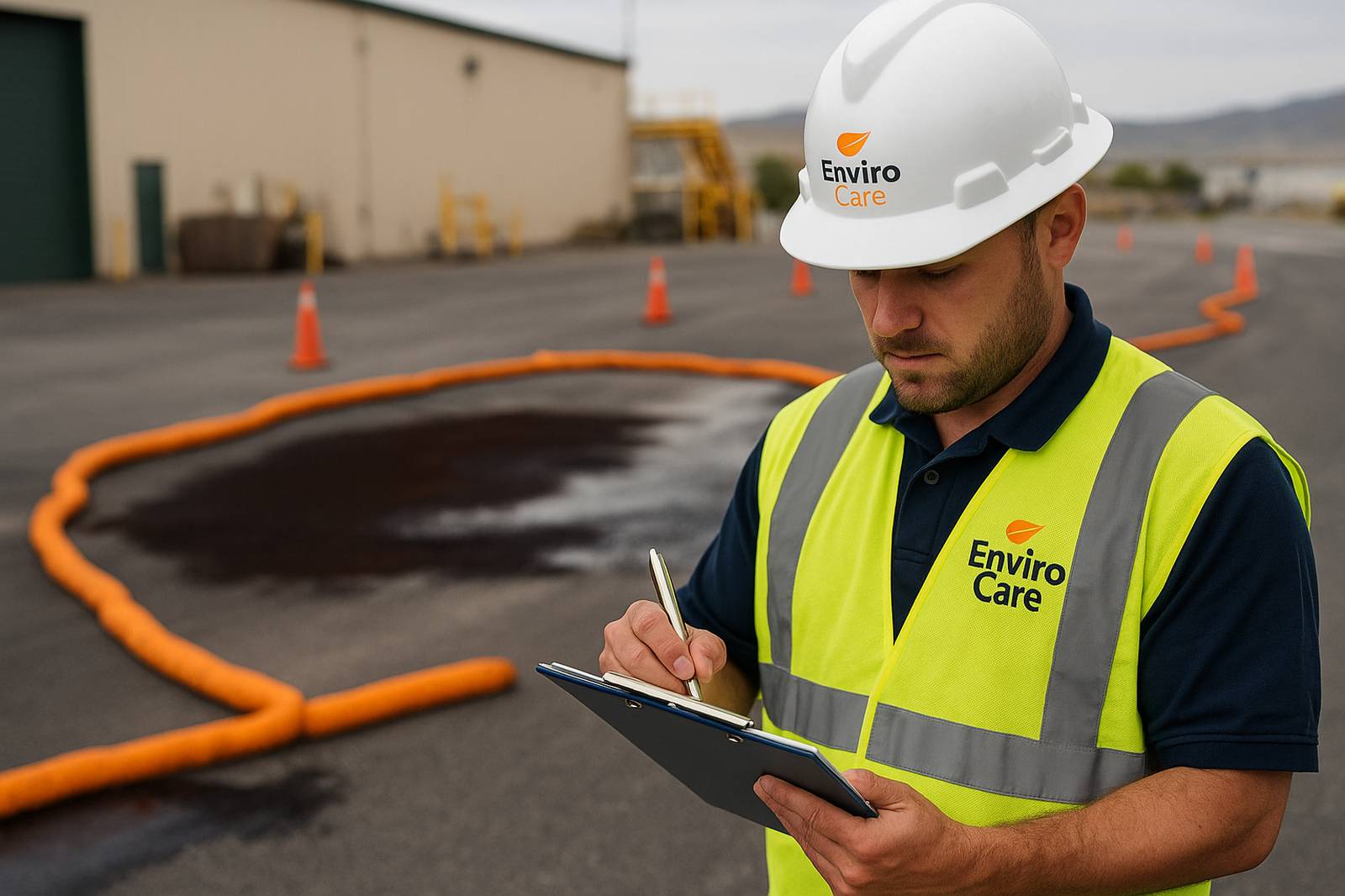
The Hidden Costs of Delayed Spill Reporting — Why Every Minute Matters
You might think, “It’s just a small spill. We’ll handle it ourselves and report later.” But waiting — even an hour — can turn a simple containment job into an environmental nightmare. When it comes to hazardous materials, time literally is money.
The Domino Effect of Delay
Hazardous materials spread quickly — especially on soil or water surfaces. While you’re deciding whether to call for help:
- Contaminants are seeping deeper into the ground
- Vapors may be forming hazardous atmospheres
- Rain or runoff can carry pollutants into storm drains or waterways
The longer you wait, the more complex the cleanup becomes — and so does the cost.
Legal and Financial Implications
Federal and state laws require immediate notification of certain spills under:
- CERCLA (Comprehensive Environmental Response, Compensation & Liability Act)
- EPCRA (Emergency Planning and Community Right-to-Know Act)
- RCRA (Resource Conservation and Recovery Act)
Failure to report can result in:
- Fines of up to $50,000 per day per violation
- Liability for full cleanup costs
- Damage to corporate reputation and insurance rates
The Real-World Cost Difference
- Immediate Response: Spill contained within hours, minor disposal costs, minimal reporting.
- Delayed Response: Contamination spreads to soil and groundwater, triggering excavation, analytical testing, and multi-agency oversight — sometimes 10–20x more expensive.
How to Avoid the Delay Trap
- Train your team on what constitutes a reportable spill
- Keep emergency contacts posted at all chemical storage and fueling areas
- Maintain a spill kit and document every incident (no matter how small)
- Partner with a professional responder like Enviro Care — we’ll handle reporting and cleanup while you handle business continuity
Spills don’t wait — and neither should you.
Add Enviro Care’s emergency line to your response plan: (800) 820-9058.
Faster calls mean faster containment, less cleanup, and fewer fines.
